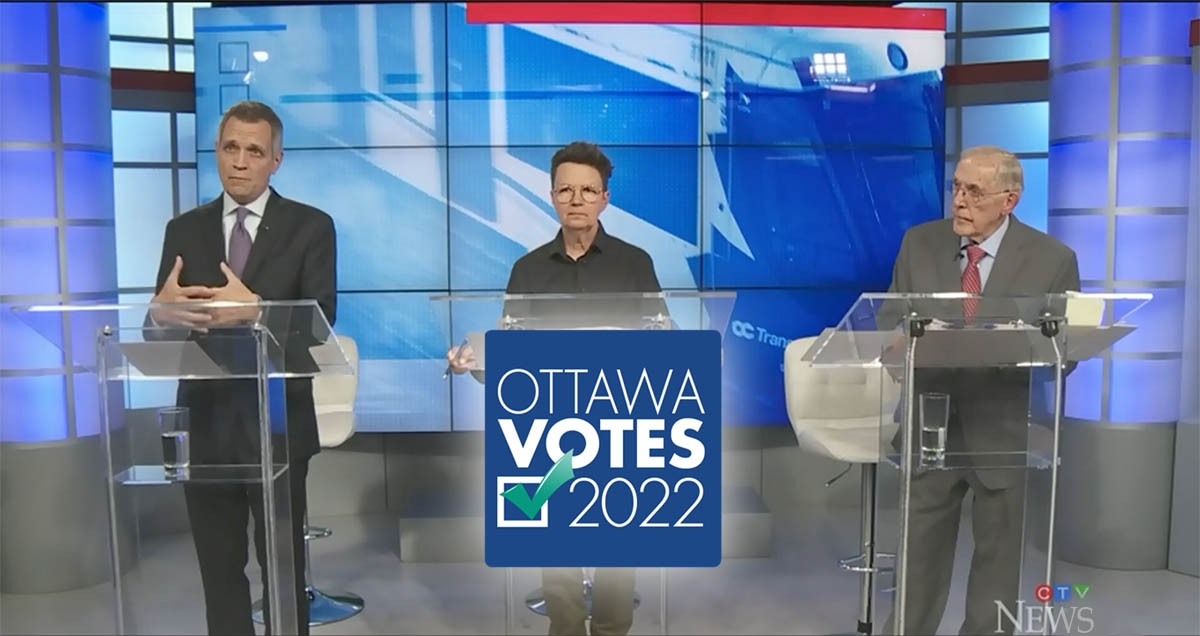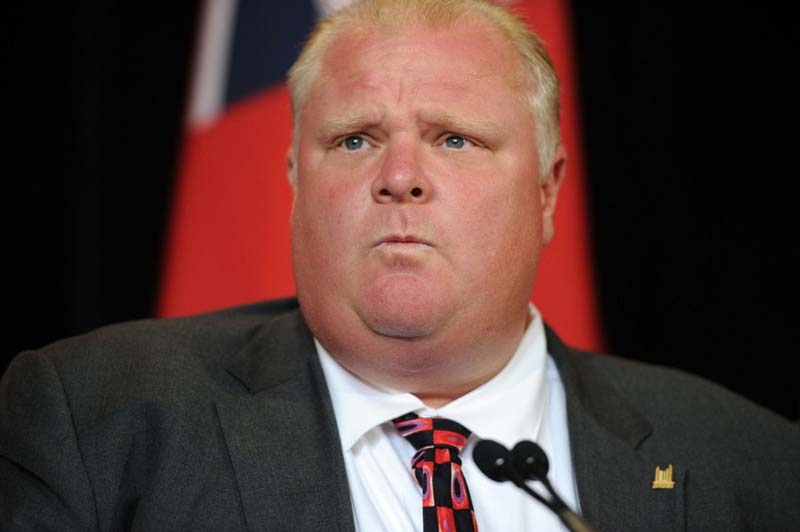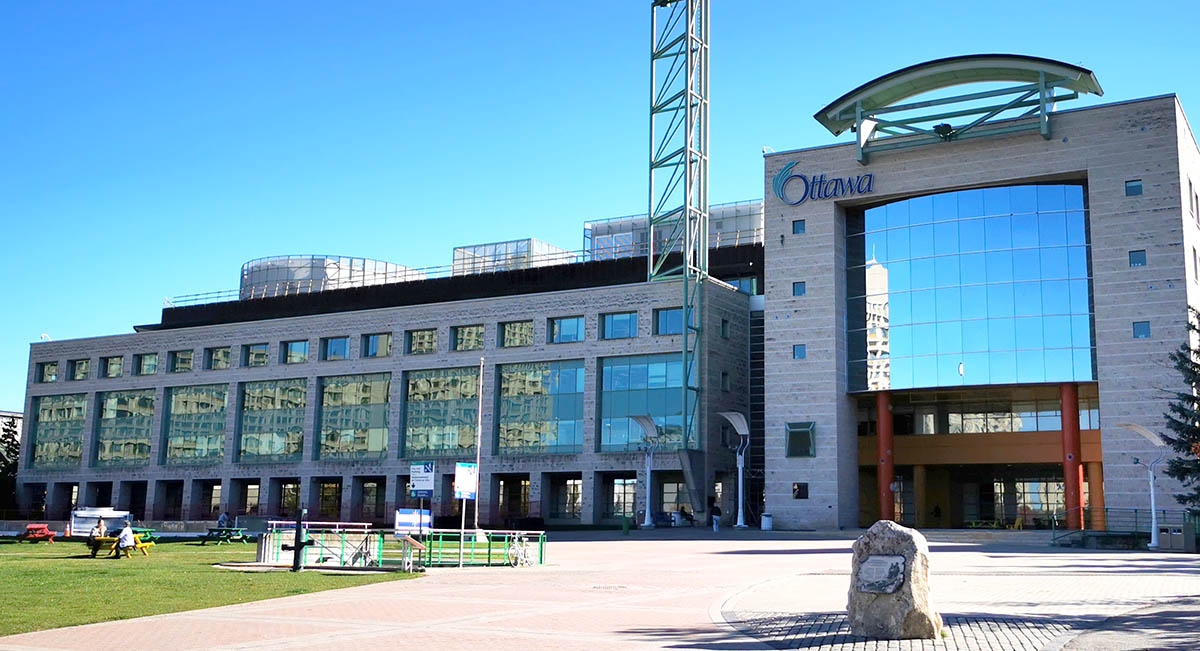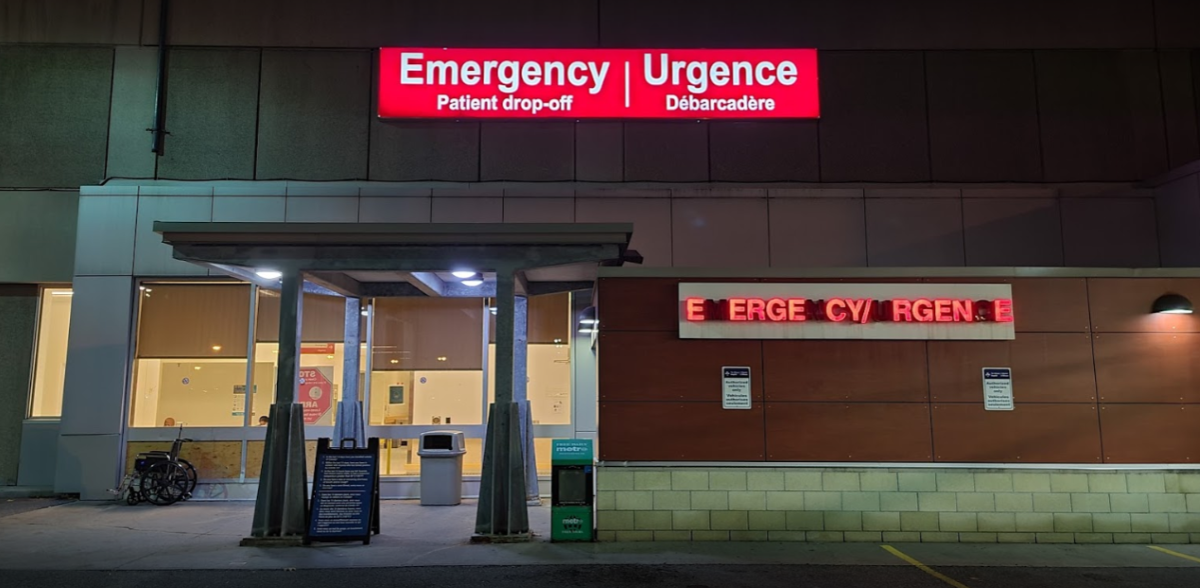
The top three mayoral candidates squared off during a CTV-hosted debate
The frontrunners in Ottawa’s mayoral race, Bob Chiarelli, Mark Sutcliffe, and Catherine McKenney, met last night in a debate hosted by CTV News. With the remaining 11 candidates not included, the trio had time to share their visions for the city and why they are the best candidate to take Ottawa into the post-Watson era in municipal governance.
Catherine McKenney was relaxed, confident, and slightly casual but on point with their platform. McKenney went at Sutcliffe for his financial plan, noting that Sutcliffe had not factored inflation into his proposed platform. McKenney stated there is a “hole in his budget” and warned of cuts to city services if either of the other two candidates present were elected to the city’s top job. McKenney advocates for better services, including affordable housing and transit that they claim will make life more affordable for citizens. McKenney closed her statement on spending by saying, “even Jim Watson knew a 2% tax increase means cuts.”
Mark Sutcliffe tried to put himself forward as the best choice, a fresh face endorsed by former mayors, sitting MPs, MPPs, and the business community. Sutcliffe’s main target throughout the debate was Catherine McKenney; the candidate pollsters have consistently called the race’s frontrunner. However, the most recent polls show that Sutcliffe is catching up. The former broadcaster projected confidence and sold himself as the middle candidate between Chiarelli and McKenney, arguing that infrastructure and budgetary restraint are needed but would have to be measured against the city’s needs.
A bone of contention for Sutcliffe is the veteran Ward 14 councillor’s plan for bike paths and lanes, which he asked McKenney about in the question section before attacking it as fiscally irresponsible. Sutcliffe added that McKenney would add $650 million to the city budget and spend $250 million on bike paths that aren’t a priority for citizens. Sutcliffe instead advocates for programs that include investing $100 million in road, sidewalk, and bike path maintenance. The two candidates also sparred on property taxes which Sutcliffe has stated he wants to keep between 2 percent and 2.5 percent, while McKenney advocates for a cap of 3 percent.
Far from acting as the provincial Liberal he once was, Bob Chiarelli sold himself as the experienced fiscal conservative in the room. Chiarelli asked Suttcliffe where he would save money in the budgetary process with his taxpayer-orientated platform for Ottawa. Chiarelli sees himself as a facilitator who can work with the Council as he has in the past. Chiarelli appeared almost irritated throughout the debate, angry and frustrated at the city’s financial affairs. He continually mentioned that he would not raise taxes and would have a 100-day investigatory period before he got down to running the city. He grilled Sutcliffe’s financial plans and said that Sutcliffe’s campaign promises are not financially feasible. Interestingly, Chiarelli went after Sutcliffe most of the debate even though the two candidates' platforms are much closer than McKenney's.
The CTV moderator noted that, according to most residents, the top election issue is transit. The ensuing conversation was the most interesting part of the debate.
Mark Sutcliffe responded to the city’s transit dilemma question by stating that the current crisis is due to a lack of leadership at Ottawa City Hall. Sutcliffe pushed his “better transit, not free transit,” advocating for route optimization and fixing the LRT. He also attacked plans for fare-free transit and said that property owners should not have to subsidize free fares on a system that doesn’t work.
Bob Chiarelli stated that the “unprecedented financial pressures on the city” have made OC Transpo service unpredictable and unreliable and that the road system is also in shambles. Chiarelli cited his tenure as provincial Minister of Transportation and said that Ottawa needs his leadership.
Catherine McKenney cited the failures in the system since 2011 and said there needs to be further investment in service while keeping it affordable. McKenney proposes a fare freeze for their first term and pitched their plan for free youth transit to build a solid ridership base so that younger people become avid transit users.
In the end, the debate didn’t provide any “Aha!” moments. Catherine McKenney showed themself as the compassionate progressive, Sutcliffe came across as the red-tory with the business community’s support and the taxpayer on his mind, while Bob Chiarelli is the man too upset to retire who is ready to shake hands with anybody on Council to get things done.
Chiarelli may have sold himself as the fiscally conservative one but Sutcliffe showed himself as a man with solutions to Ottawa’s current problems. Coming from a progressive slant, Catherine McKenney presented policy options that would satisfy the progressively minded, the downtown, and the compassionate voter. Chiarelli played to those residents alienated and disenfranchised by city politics.
It is unlikely that last night’s debate moved the polls, but each candidate did a good job displaying their strong sides. The municipal election will take place in ten days, on October 24, 2022.
IMAGE: Via ottawa.ctvnews.ca









